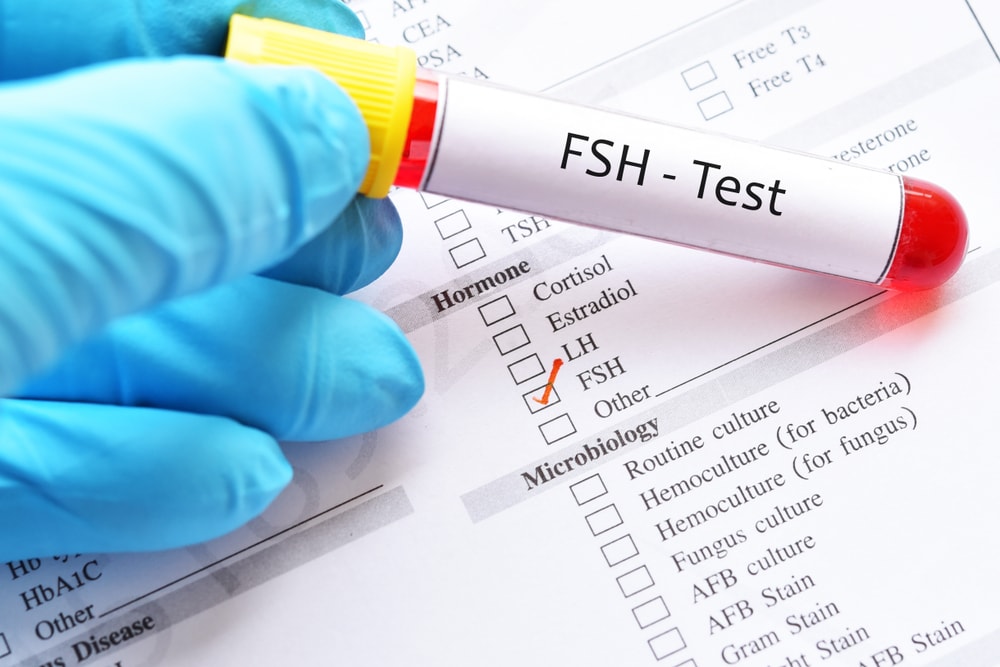Follicle Stimulating Hormone, commonly known as FSH, is an important hormone in the reproductive processes in both men and women. An insufficient amount in either partner can lead to infertility issues. Her FSH levels affects the quality and quantity of her remaining eggs and can directly affect her chances of conceiving and sustaining pregnancy.
Your FSH Levels
When trying to conceive, your Follicle Stimulating Hormone level needs to be below 10mIU/ml. When FSH levels are too high or too low, achieving pregnancy can become much more difficult because it affects your menstrual cycle and whether or not you ovulate.
As your egg quality and quantity dwindle – your body will try to compensate by producing more FSH in order to stimulate ovarian function. This is commonly seen in women who are experiencing premature menopause, approaching menopause – the declining estrogen levels that accompany menopause lead the body to produce more FSH in an attempt to sustain a healthy ovarian reserve in spite of low estrogen levels.
If you have Polycystic Ovarian Syndrome (PCOS), you will want to pay close attention to your FSH levels, or more specifically, the ratio of luteinizing hormone (LH) to FSH. While women with PCOS might have FSH levels within normal range, often the ratio of LH to FSH is off. In young women without PCOS, the ratio of LH to FSH is approximately 1:1, while women with PCOS might see this ratio as high as 2:1 or 3:1. This abnormal ratio disrupts ovulation.
FSH Level Testing
Because it’s important to know your FSH levels, your doctor may recommend a FSH levels test to measure the amount of FSH in your blood. The results will help the doctor diagnose an underlying fertility issues.
The FSH levels test is simple blood work. You will be asked to get tested during certain point in your menstrual cycle, usually the 3rd day of your period and continue through cycle day 5.
What do your Follicle Stimulating Hormone test results mean?
Both gender and age affect FSH levels. Because FSH levels also fluctuate based on where a woman is in her menstrual cycle, it’s best to review your results with your doctor.
High levels in women potentially could indicate:
- You’re not producing good quality eggs that are available for fertilization. Age is the most common reason for this to happen. Fertility declines with age as fewer eggs mature in the ovaries and the quality of those that do mature is less than when you were younger.
- Menopause
- Ovarian failure or loss of ovarian function
- Chromosomal abnormality
Follicle Stimulating Hormone levels do not paint the whole picture, but indicate if further testing is needed.
Our Ultimate Fertility Resource Guide provides the information you need on fertility, tips on how to get pregnant faster, and how to boost fertility through sometimes simple tweaks to your lifestyle and approach. The guide is easy to read and meant for anybody wanting to increase their ability to conceive. It’s a free download and includes coupon codes for essential products. Even free Nightfood Nighttime Ice Cream.
Want to Know More?






